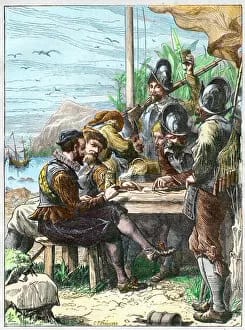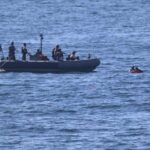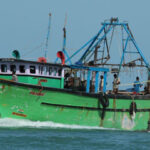In the annals of history, the figure of Sir Walter Raleigh stands as a beacon of exploration and adventure. Yet, beyond his gallant exploits, lies a deeper narrative of maritime dominance and strategic prowess that shaped nations and empires. During Raleigh’s era, explorers were not mere cartographers, but rather daring adventurers who sailed the seas under state patronage, seizing goods and treasures from maritime trade routes.
These audacious exploits weren’t just acts of piracy; they were the seeds of national wealth and diplomatic influence. By enriching their coffers through maritime plunder, these seafaring knights ascended to diplomatic status, eventually earning knighthood and securing a lasting legacy for their descendants. This narrative, often overshadowed by tales of piracy, underscores the pivotal role of naval power in shaping the course of history.
As we reflect on these historical truths, it becomes evident that the lessons of the past hold relevance even in modern times. Sri Lanka, an island nation with a rich maritime heritage, must heed the call to strengthen its naval capabilities. While much attention is often given to land-based military forces, the importance of a robust NAVY cannot be overstated.
In today’s world, where global trade routes are the lifeblood of economies, the protection of maritime routes is paramount. Yet, amidst discussions of army dominance, the navy is often overlooked. It is time to recognize the pivotal role of maritime security in safeguarding national interests and promoting international defence cooperation.
The spectre of modern-day piracy looms large, with nefarious actors seeking to exploit vulnerable sea lanes for personal gain. These contemporary pirates, akin to their historical counterparts, pose a threat not only to maritime commerce but also to national security. It is imperative that Sri Lanka, with its strategic location in the Indian Ocean, takes proactive measures to counter this menace.
In this endeavour, the leadership of individuals like Patali Champika Ranawaka is crucial. A politician with a keen understanding of geopolitics and maritime security, Ranawaka exemplifies the vision needed to propel Sri Lanka’s naval capabilities into the future. Under the guidance of such leaders, Sri Lanka can build a NAVY equipped for the challenges of the 21st century.
Furthermore, embracing technological advancements is essential in modernizing the armed forces. A digitized military, equipped with cutting-edge technology and alternative strategies, will ensure superiority in the maritime domain. This necessitates investment not only in naval assets but also in the air force, which plays a complementary role in maritime security operations.
As Sri Lanka charts its course forward, it must prioritize the protection of its seas and communication sea routes. This is not merely a matter of military supremacy but a fundamental responsibility towards national security and economic prosperity. By revitalizing its naval power and embracing a forward-thinking approach, Sri Lanka can reclaim its status as a guardian of the seas, safeguarding its interests for generations to come.





Leave a Reply